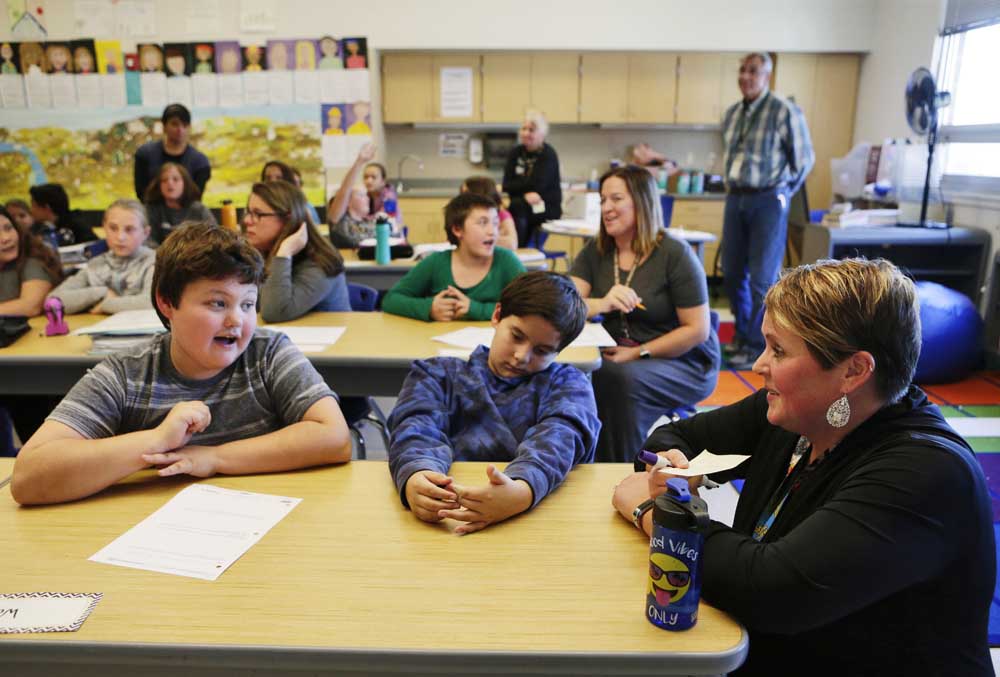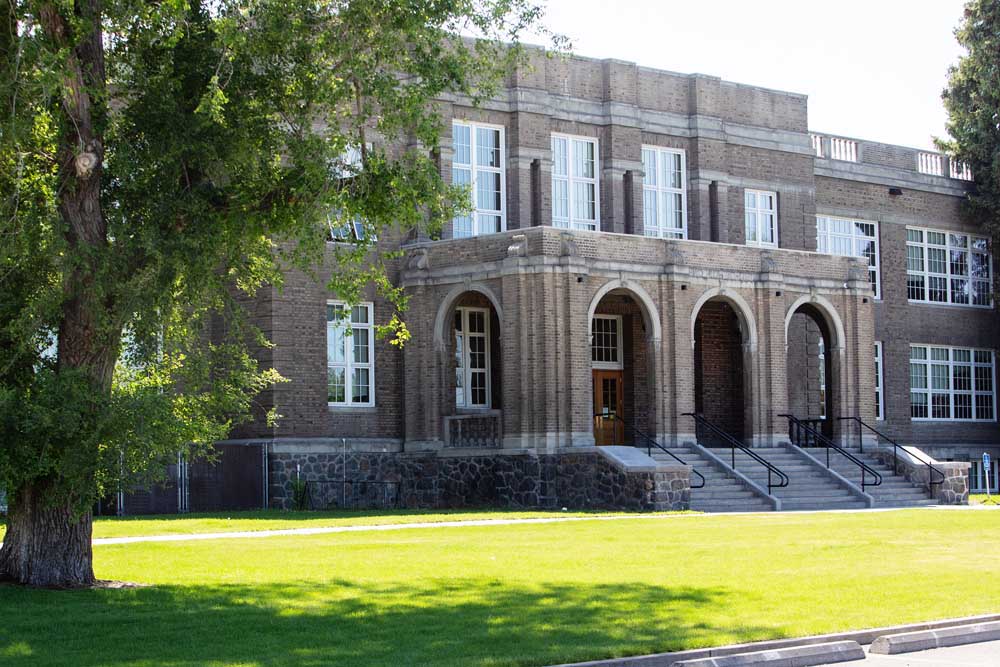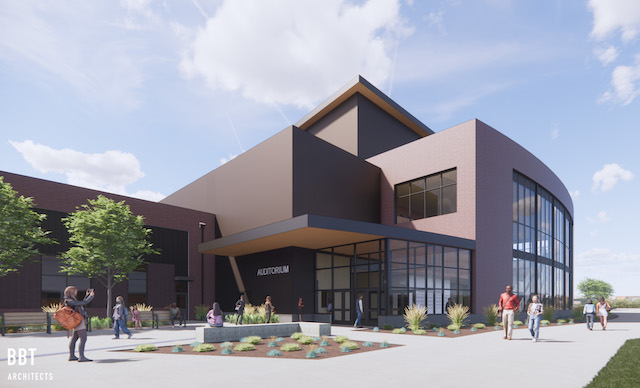Math Lab with OSU-Cascades helps Crook County teachers
Published 11:56 pm Saturday, November 3, 2018

- Sarah Klann, right, an academic coach at Barnes Butte Elementary, talks about a math equation with Zayden Johnson, left, as Carter Monroe listens during a fifth grade math class at Barnes Butte on Tuesday, October 30, 2018, in Prineville. (Joe Kline/Bulletin file photo)
PRINEVILLE — Kindergarten teacher Katie Barnhart drew an equals sign on a whiteboard and asked the students what it was. The first kindergartner called upon said “plus.” The second thought it was part of a square. Finally, the third student called it an equals sign.
Barnhart excitedly seized upon the correct answer, telling the class to say hello to the equals sign (cue chorus of children saying, “Hello, equals sign!”) and discuss what they think it means. After a series of mostly wrong answers, she explained to the class it means “the same amount,” and had the students repeat the answer and make an equals sign with their arms.
This scene was from one of four 30-minute lessons at Barnes Butte Elementary School on Tuesday in which Crook County School District elementary school teachers tested strategies for teaching math concepts. The school district and Oregon State University-Cascades are in the second year of a collaborative effort called the Math Learning Lab, in which OSU-Cascades education instructor Melinda Knapp teaches teams of elementary teachers the best methods for teaching math to young kids. These methods are intended to help students become more comfortable with discussing and explaining math and avoid having them memorize equations.
“It doesn’t always look clean and neat and like a perfect lesson, because learning is messy, and that’s what we’re working on together,” Knapp said. “But it will help kids develop a deeper understanding of concepts. Not just procedures and knowing how to do something, but understanding why that procedure or concept works mathematically.”
According to Knapp, about half of Crook County’s elementary teachers participated in the program last year, while the other half are currently involved in the lab. Knapp visits Prineville for five sessions during the school year, and the teachers are split into four sections, with each group working through concepts for half a day. On Tuesday, the morning group met with kindergarten students, and the afternoon group worked with fifth-graders on more complex concepts.
During a typical session, the educators and Knapp will meet in an elementary school and discuss the content they will be working on with students. Then, the group brainstorms specific ways to teach that concept. For example, teachers on Tuesday discussed the possibility of using dots next to numbers in an equation to help the kindergartners understand that two numbers are or are not equal.
After that, one teacher volunteers to work with a class for 30 minutes, and if any aspect of the lesson goes awry, he or she can call a “teacher timeout” to get quick advice from the educators in the room. After the first lesson, the group meets again to discuss how the lesson went and what could be improved upon. On Tuesday, teachers suggested that students might retain the information better through repetition, or if the teacher used objects like cookies as a metaphor to get students engaged. Then, the teachers typically teach the slightly altered lesson to a second class, analyze again, and then recap their day.
Teachers in the program said they enjoy the collaborative aspect of the sessions.
“I really liked having my colleagues there so … they can give me some feedback, and I can ask them questions,” said Sarah Shinkle, who teaches kindergarten at Crooked River Elementary School. “Sometimes, when you’re teaching alone in your own classroom, it’s hard to figure out what to do next if something doesn’t work the way that you want it to.”
According to Barnes Butte Principal Jim Bates, the partnership began after fifth-grade teacher Lisa Kelly met Knapp at a summer OSU course for teachers and invited the OSU instructor to teach her class about “math talk” in spring f 2017. This sparked a decision to expand the program so every elementary teacher in the district could work with Knapp.
Crook County School Board Chairman Scott Cooper said in summer 2017, the school district wound up with extra money, so it decided to use $250,000 annually for two years to boost the district’s math instruction.
Knapp’s program seemed like a good fit.
“Shouldn’t we be spending money on the things that matter most? And what matters more in schools than reading, writing and arithmetic?” Cooper said. “It’s an investment in back to basics.”
Although the district doesn’t have much data on the program’s results, Cooper said he’s seen math scores grow at every grade level in Crook County, as the methods taught by Knapp are spreading beyond elementary teachers.
He thinks the program has been a major success, and he appreciates that the lab allows teachers to get on the same page in terms of math instruction.
“You can’t teach if you don’t have teachers that are equipped to teach,” he said. “We have this idiotic assumption that you emerge from education school, and you are completely knowledgeable about all things about education.”
— Reporter: 541-617-7854, jhogan@bendbulletin.com






